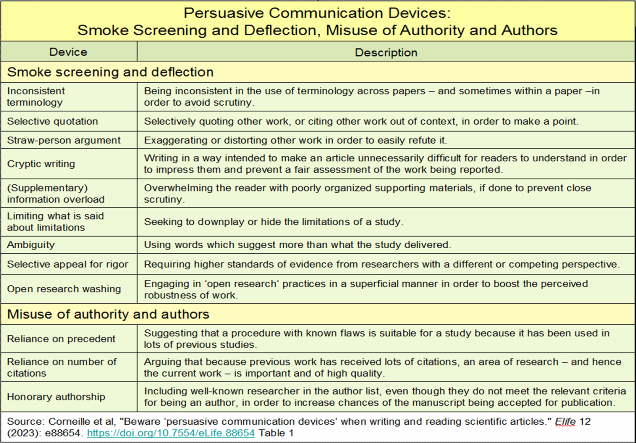“Authors rely on a range of devices and techniques to attract and maintain the interest of readers, and to convince them of the merits of the author’s point of view. However, when writing a scientific article, authors must use these ‘persuasive communication devices’ carefully. In particular, they must be explicit about the limitations of their work, avoid obfuscation, and resist the temptation to oversell their results.” - Corneille et al, "Beware ‘persuasive communication devices’ when writing and reading scientific articles."
Does that mean science writers should avoid expressing opinions regarding the significance of whatever they’re writing about? No, but they should do so in the spirit of science: with an abundance of caution and plenty of hedging. Above all, they need to take care not to mislead or exaggerate.
Here’s a handy list of problematic persuasive devices that can mislead readers and are best avoided by science writers*:
Related Posts: When Cause Trumps Truth: The Case of Agenda-Driven Science Behind the Headlines: Scientists Mistrust a Lot of Published Research Science, Humility and the Qualities of Good Research Writing
—
* However, Corneille et al stress that the typology is still a work-in=progress and should not be approached dogmatically as iron-clad rules.
Reference:
Corneille, Olivier, Jo Havemann, Emma L. Henderson, Hans IJzerman, Ian Hussey, Jean-Jacques Orban de Xivry, Lee Jussim et al. "Beware ‘persuasive communication devices’ when writing and reading scientific articles." Elife 12 (2023): e88654 https://doi.org/10.7554/eLife.88654

